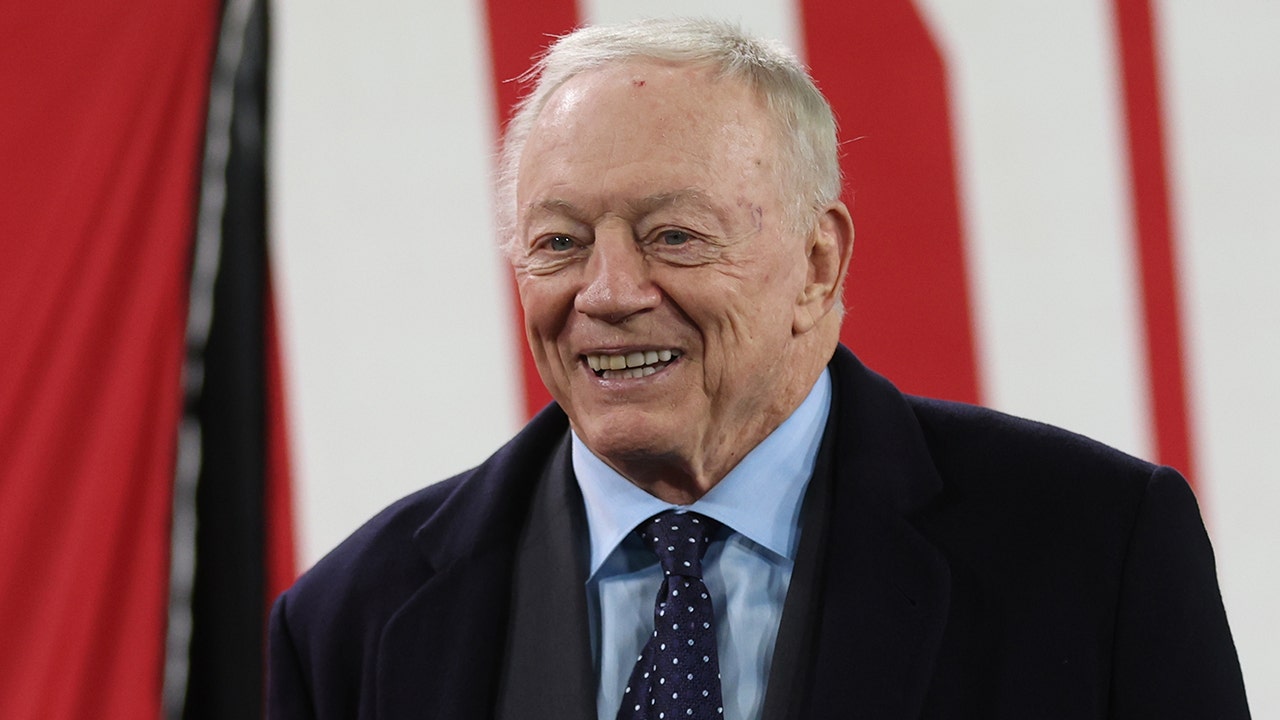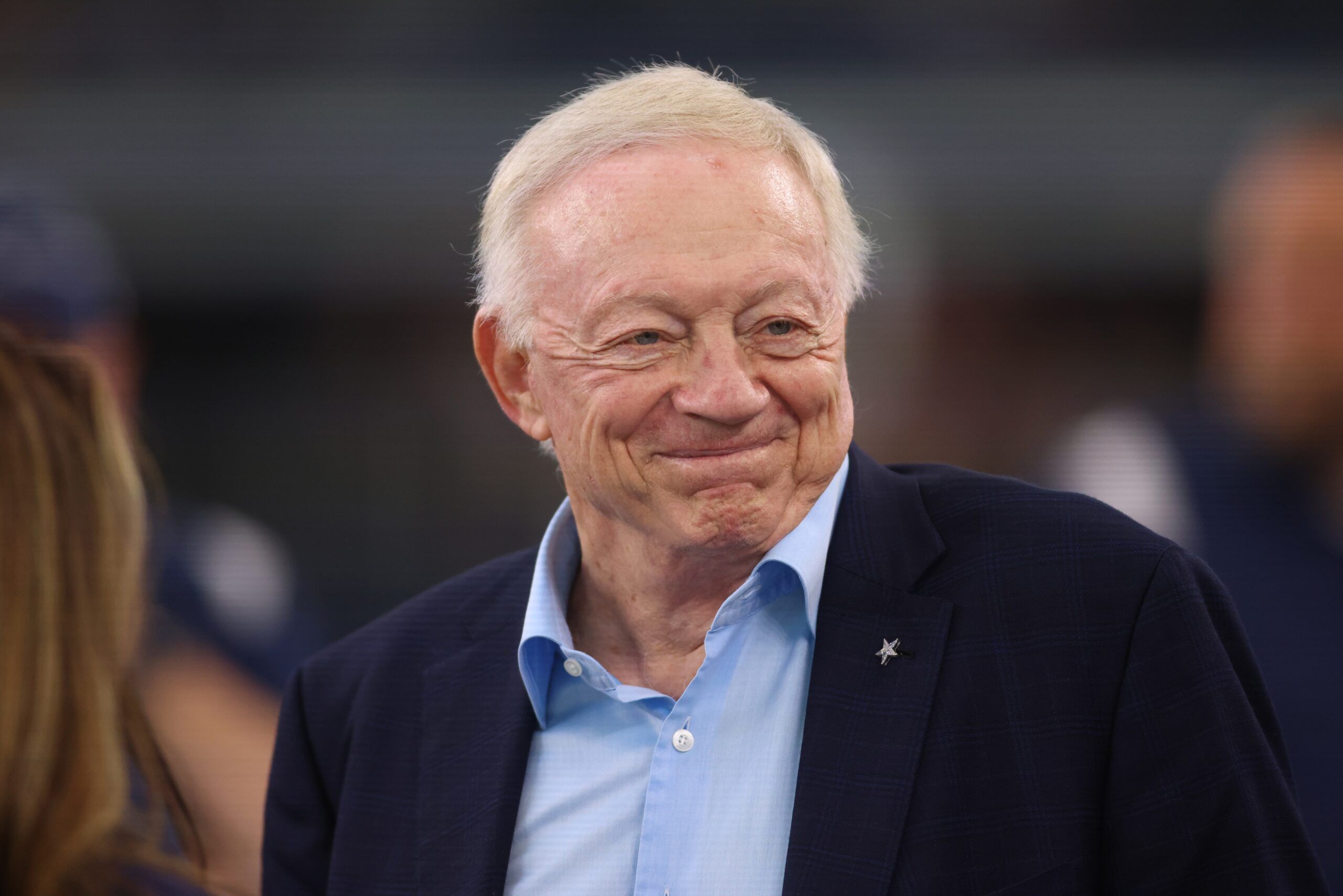Jerry Jones Shuts Door on NIL Support for Oklahoma Sooners, Says No Plans to Help
In a recent statement that has sent shockwaves through the college sports world, Dallas Cowboys owner Jerry Jones confirmed that he would not be offering any financial support for the University of Oklahoma Sooners through the burgeoning Name, Image, and Likeness (NIL) program. Despite his well-known ties to college football and his commitment to helping elevate the sport, Jones made it clear that he has no plans to invest in NIL deals for Oklahoma athletes. The announcement has sparked a range of reactions from fans, pundits, and college sports administrators, especially considering Jones’ influential position in the world of sports and his deep ties to both football and his home state of Arkansas.
The NIL Landscape in College Football
The concept of NIL has drastically altered the landscape of college athletics since it was legalized by the NCAA in 2021. The rule change allowed college athletes to profit from their personal brand by securing endorsement deals, signing autographs, making public appearances, and participating in other monetizable ventures that capitalize on their name, image, or likeness. While NIL has been celebrated for empowering athletes with financial opportunities, it has also introduced a new level of competition and pressure for programs trying to attract the best recruits.
For elite programs like Oklahoma, which has a rich history of success on the football field, securing NIL deals has become an essential part of their recruiting strategy. Programs across the country have begun to assemble massive NIL war chests to offer recruits lucrative deals, with some universities even setting up collective organizations to pool resources from boosters and alumni. In this competitive environment, Jones’ refusal to assist Oklahoma’s NIL efforts raises eyebrows, particularly because of his longstanding ties to the state and the world of college football.
Jerry Jones and His Ties to Oklahoma
While Jerry Jones is perhaps best known for his role as the owner of the Dallas Cowboys, his connection to college football runs deep. Jones himself played college football at the University of Arkansas, where he was a standout player for the Razorbacks. This connection to Arkansas has been a source of pride for Jones, and it has been widely assumed that he would support programs in the region. The University of Oklahoma, though geographically close to Arkansas, is a major rival in the college football landscape, particularly in the Big 12 Conference.
Jones’ decision not to support Oklahoma’s NIL efforts can be seen as a direct reflection of his loyalty to his alma mater. While Jones has made significant investments in football, both at the professional and collegiate levels, it is likely that his commitment to Arkansas – as well as his longstanding personal and business relationships in the state – weighs heavily on his decision-making.
Furthermore, Jones has been actively involved in various philanthropic endeavors related to football, but his focus has historically been on building up Arkansas and its sports programs. Whether it is through the Jerry Jones Family Foundation or his influence in the NFL, his legacy is tightly intertwined with the state of Arkansas, which may be the driving factor behind his reluctance to direct funds toward Oklahoma, even though it would have been a powerful move in the NIL space.
The Impact on Oklahoma’s Recruiting
The announcement that Jones will not be backing Oklahoma’s NIL efforts has created a ripple effect throughout the college football world. NIL has become one of the most important factors in recruiting, as high school athletes are not only looking for strong coaching staffs and winning traditions but also financial opportunities that can set them up for future success.
For Oklahoma, the absence of a wealthy benefactor like Jones could put the program at a competitive disadvantage. The Sooners are facing an increasingly crowded NIL landscape where top-tier recruits are choosing schools based on which program offers them the most lucrative deals. Without financial backing from influential figures such as Jones, Oklahoma may struggle to keep up with rival schools that are pouring millions into their NIL programs.
In particular, Texas, a rival of Oklahoma, has seen immense success in its NIL efforts, with high-profile boosters and alumni stepping in to support athletes. Oklahoma will need to find alternative sources of funding to remain competitive in the recruiting game. This could lead to the creation of new NIL collectives or an increased reliance on existing boosters to bridge the gap left by Jones’ lack of involvement.
The Bigger Picture: Business and Personal Loyalty
While Jones’ decision may seem like a blow to Oklahoma, it also reflects a larger trend in the world of college athletics: the intertwining of business interests and personal loyalty. For Jones, his brand and personal connections come first, and that includes his allegiance to Arkansas and his preference for supporting programs in that state. From a business perspective, this decision also aligns with his strategic interests. The NFL, where Jones holds considerable influence, is a massive part of his wealth and business empire. His primary focus is on the Dallas Cowboys, and his actions regarding NIL reflect his commitment to his professional interests, which are rooted in Texas and Arkansas.
However, the NIL era presents a challenge for these older loyalties and the balance between personal connections and business decisions. NIL deals are about more than just money; they are a way for schools and athletes to build powerful brands that can last a lifetime. And as more alumni and wealthy supporters take sides, the emotional and business dimensions of NIL deals become increasingly important.
Reactions From Oklahoma Fans and Analysts
The news has elicited a wide range of reactions, especially from Oklahoma fans who may have viewed Jones as a potential ally in the NIL wars. Some fans feel disappointed and frustrated by his decision, particularly those who have been advocating for a more aggressive NIL approach at their university. These supporters see NIL as an essential tool for the continued success of the program and are eager for any financial backing that could help elevate the Sooners.
On the other hand, some analysts argue that Oklahoma has the resources to succeed in the NIL era, even without Jones’ backing. The Sooners have long been one of the top programs in college football, and while NIL deals are an important part of recruiting, Oklahoma has traditionally been able to attract top talent through its coaching staff, culture, and winning history. While Jones’ involvement could have been a game-changer, Oklahoma’s position as a perennial powerhouse in the sport gives it some leeway.
What’s Next for Oklahoma and NIL?
As the NIL landscape continues to evolve, Oklahoma will likely need to adapt quickly. With programs like Texas, Alabama, and USC setting the bar in terms of NIL support, Oklahoma may have to get creative in securing partnerships, building relationships with alumni, and ensuring that recruits see the university as a viable destination for financial success.
For now, though, Jerry Jones’ refusal to back the Oklahoma Sooners represents a moment of reckoning for the program. While his decision may not be the end of the world for Oklahoma, it serves as a reminder that in today’s college football, nothing can be taken for granted – not even the financial backing of influential figures.














